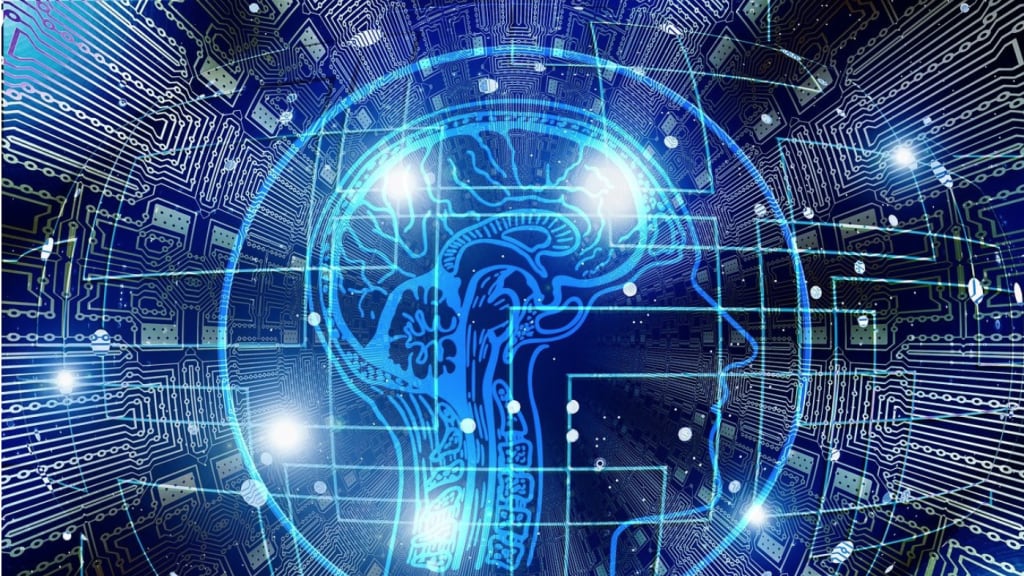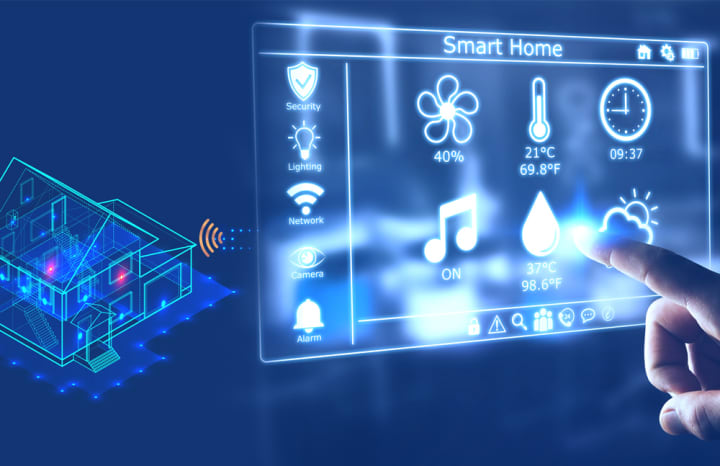AI Everywhere: How Artificial Intelligence is Revolutionizing Our Lives
Artificial Intelligence (AI) has a long and storied history, dating back to the mid-20th century. However, it is only in recent years that AI has become a ubiquitous presence in our lives, permeating virtually every aspect of modern society. From the smartphones in our pockets to the algorithms that power our online experiences, AI is transforming the way we interact with technology and with each other. However, as AI continues to expand its reach and influence, many questions have arisen about its impact on society, its ethical implications, and the challenges it poses for individuals and institutions.

The history of AI
The history of AI can be traced back to the 1940s, when researchers began exploring the idea of machines that could simulate human intelligence. The first breakthroughs came in the 1950s, with the development of the first AI programs capable of solving problems and reasoning. However, progress was slow, and it wasn't until the 1980s and 1990s that AI began to gain traction in the commercial world. Today, AI is a multi-billion dollar industry, with applications ranging from self-driving cars to facial recognition software.
Despite the progress that has been made, however, AI is still a long way from achieving true human-like intelligence. While machines can be programmed to perform specific tasks and solve specific problems, they lack the intuition and creativity that are fundamental to human intelligence. As a result, AI is still largely limited to narrow, specialized applications.
AI in everyday life
AI is everywhere in our lives, even if we don't always realize it. From the digital assistants on our smartphones to the personalized recommendations we receive from online retailers, AI is powering many of the technologies we use on a daily basis. In fact, it's estimated that by 2025, the global AI market will be worth over $100 billion.
One of the most visible examples of AI in everyday life is the rise of smart homes. With the help of AI-powered devices like Amazon's Alexa and Google Home, homeowners can control their lights, thermostats, and other appliances with simple voice commands. This not only makes life more convenient, but it can also help reduce energy consumption and lower utility bills.
AI is also transforming healthcare, with applications ranging from diagnosing diseases to developing personalized treatment plans. Machine learning algorithms can analyze vast amounts of medical data to identify patterns and make predictions, potentially leading to more accurate diagnoses and better patient outcomes.

The future of AI
The future of AI is both exciting and uncertain. On the one hand, AI has the potential to solve some of the world's most pressing problems, from climate change to disease. On the other hand, there are concerns about the impact of AI on jobs and the economy, as well as the potential dangers posed by autonomous weapons and other forms of AI.
One area where AI is expected to have a major impact in the coming years is transportation. Self-driving cars are already being tested on public roads, and experts predict that they could become commonplace within the next decade. This could lead to significant improvements in road safety, as well as reduced traffic congestion and lower carbon emissions.
Another area where AI is poised to make a big impact is in the field of education. Adaptive learning platforms, powered by AI algorithms, can personalize the learning experience for each individual student, providing targeted feedback and resources to help them master difficult concepts. This could help reduce the achievement gap between students from different backgrounds and improve overall educational outcomes.

How AI is changing industries
AI is already having a significant impact on many industries, from healthcare to finance to retail. In healthcare, AI is being used to develop new drugs and treatments, improve diagnostic accuracy, and streamline administrative tasks. In finance, AI is being used to detect fraud, make investment recommendations, and automate trading. And in retail, AI is being used to personalize marketing campaigns, optimize pricing, and improve customer service.
However, the rise of AI is also leading to job displacement in some industries. As machines become more capable of performing tasks that were once the exclusive domain of humans, many workers are finding themselves out of work. This has led to calls for new policies to support workers in transitioning to new careers and to help ensure that the benefits of AI are shared more equitably.
The potential dangers of AI
Despite its many benefits, AI also poses a number of potential dangers. One of the biggest concerns is the possibility of unintended consequences, as machines become more autonomous and less predictable. There is also the risk of bias and discrimination, as AI algorithms may reflect the biases of their creators or the data they are trained on.
Another concern is the potential for AI to be used for malicious purposes, such as cyberattacks or autonomous weapons. As AI becomes more pervasive and powerful, it will be increasingly important to ensure that it is used ethically and responsibly.
The role of government in regulating AI
Given the potential risks and benefits of AI, there is a growing debate about the role of government in regulating its development and deployment. Some argue that AI should be left to market forces, with companies free to innovate and compete as they see fit. Others argue that government has a responsibility to ensure that AI is developed and used in ways that are safe, ethical, and beneficial to society as a whole.
There is no easy answer to this question, and different countries are taking different approaches. Some, like China, are investing heavily in AI and taking a relatively hands-off approach to regulation. Others, like the European Union, are taking a more cautious approach, with strict regulations around data privacy and AI development.
The ethical implications of AI
Finally, it is important to consider the ethical implications of AI. As machines become more intelligent and autonomous, they will increasingly be faced with ethical dilemmas and decisions. For example, how should a self-driving car react when faced with a choice between swerving to avoid a pedestrian and staying on course to avoid a collision with another vehicle?
These are complex questions with no easy answers, and they raise fundamental questions about the nature of consciousness, free will, and responsibility. As AI continues to evolve and become more intertwined with our lives, it will be increasingly important to grapple with these ethical issues and ensure that we are using this powerful technology in ways that align with our values and aspirations.
Conclusion
In conclusion, AI is transforming the world around us, with applications ranging from healthcare to transportation to education. While there are many benefits to this powerful technology, there are also significant risks and challenges that must be addressed. As AI continues to expand its reach and influence, it will be increasingly important to ensure that it is developed and used in ways that are safe, ethical, and beneficial to society as a whole.





Comments
There are no comments for this story
Be the first to respond and start the conversation.